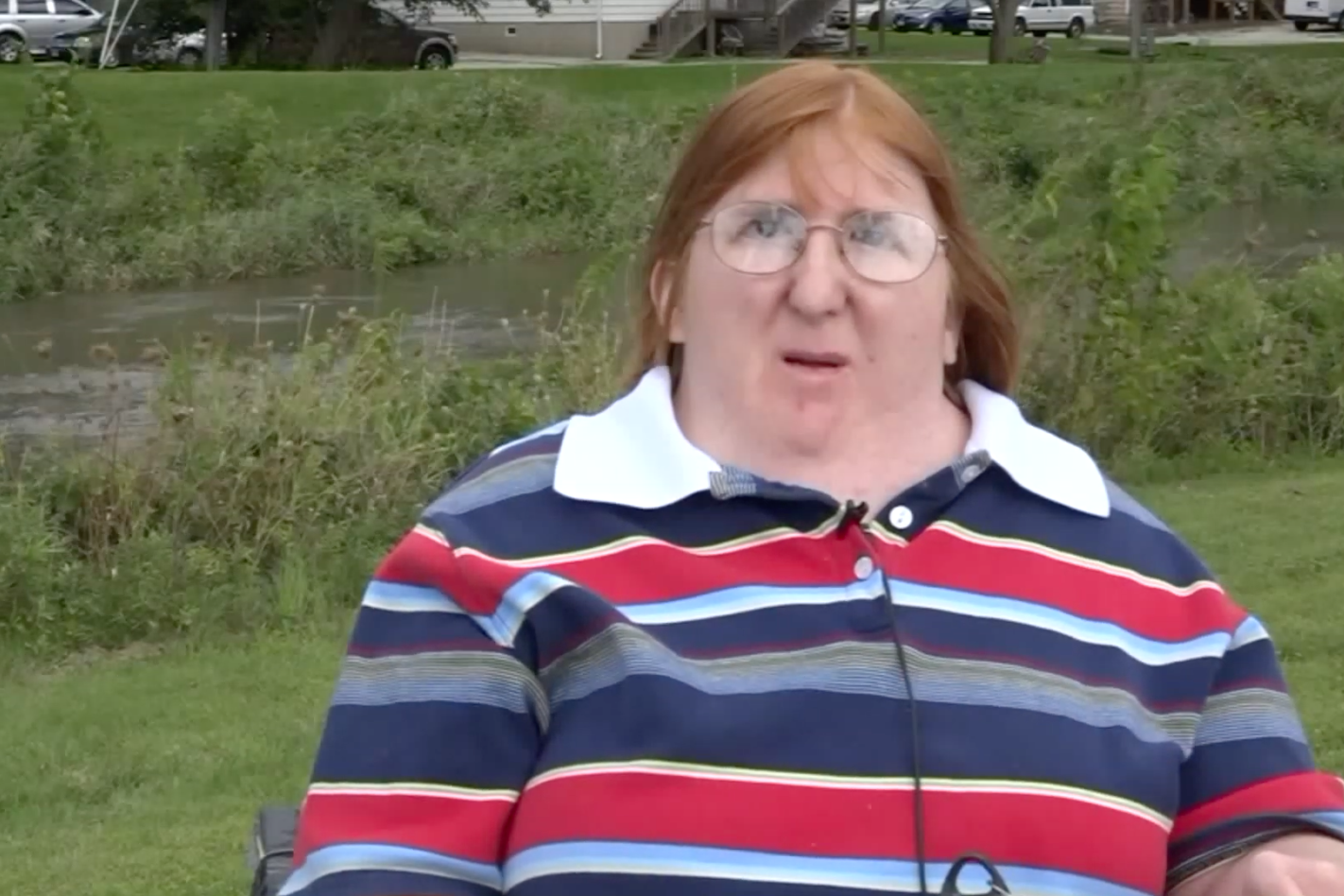Disability activist calls out parents who use her face to scare children in 'harmful and hurtful' TikTok challenge
Challenge sees parents show their children photos of disabled people, who they say is their new teacher, to capture reactions

Your support helps us to tell the story
From reproductive rights to climate change to Big Tech, The Independent is on the ground when the story is developing. Whether it's investigating the financials of Elon Musk's pro-Trump PAC or producing our latest documentary, 'The A Word', which shines a light on the American women fighting for reproductive rights, we know how important it is to parse out the facts from the messaging.
At such a critical moment in US history, we need reporters on the ground. Your donation allows us to keep sending journalists to speak to both sides of the story.
The Independent is trusted by Americans across the entire political spectrum. And unlike many other quality news outlets, we choose not to lock Americans out of our reporting and analysis with paywalls. We believe quality journalism should be available to everyone, paid for by those who can afford it.
Your support makes all the difference.A disability activist has called on parents to stop using her photos in a “disturbing” new TikTok challenge.
In an article for Refinery29, Melissa Blake, who was born with a genetic bone and muscular disorder called Freeman-Sheldon syndrome, described her hurt and disgust at finding out that parents have been using her pictures to scare their children in what has become known as the New Teacher Challenge.
Explaining that she has experienced online bullying before due to her visibility as a freelance writer and activist, Blake wrote: “I’d thought I’d seen it all. But a few weeks ago, I discovered it was happening again on TikTok through something called the New Teacher Challenge.
“It’s the latest viral trend in which parents show their children photos of disabled people, who they say is their child’s new teacher. The kids' reactions - typically frightened and embarrassed - is filmed, of course. And it’s all done for a laugh.
“I’m not laughing, though, because none of this is funny. I’m utterly disgusted.”
Blake also writes that she is not the only one who has been subjected to the harassment, explaining that motivational speaker Lizzie Velasquez recently called out the trend on Instagram.
“The people you put in photos or videos are human beings!!” Velasquez captioned her post. “We have feelings and we have something we work on everyday called self-confidence. Please PLEASE don’t teach your children that it’s funny to be afraid of someone who doesn’t look like them.”
According to Blake, who points out that society often paints people who look different as “ugly and grotesque,” a stereotype perpetuated by Disney villains, there is “absolutely no excuse” for parents to participate in this behaviour.
“They should be the ones teaching their children how harmful and hurtful these pranks are, not laughing in the background as their child recoils at the sight of a disabled person,” Blake wrote.
According to the blogger, the trend has only “reinforced how important disability representation is,” as well as the need to “normalise seeing people who don’t look like us or our family members.”
Blake also called on social media platforms to do more to combat the “online hate,” explaining that TikTok has previously said the content does not violate its rules.
“I want to be clear: I am violated. Every single time. Each photo, taunt, and cruel word is a clear violation of my dignity and my worth as a human being,” Blake wrote. “And every time these platforms fail to take action, they’re sending the message that this bullying is okay. So many disabled people have become inured to our appearance being mocked. That’s not something we should ever have to get used to.”
Blake concluded the emotional article reiterating that “disabled people aren’t here for your ridicule.”
“We’re not punchlines. We’re people. It’s my hope that more people (and platforms, too - TikTok, I’m also looking at you) join us in this fight,” she wrote. We need you all. Disabled or not.”
On social media, Blake’s article has been met with an outpouring of support.
“I am so profoundly sorry this keeps happening and I thank you and other advocates so much for continuing to speak out and speak up. What you do is incredibly important and brave, I just wish it still wasn’t so necessary. But you are making a difference,” one person wrote.
Another said: “Thank you for writing this, for your bravery, and for being a positive example for so many.”
The Independent has contacted TikTok for comment.
Join our commenting forum
Join thought-provoking conversations, follow other Independent readers and see their replies
Comments